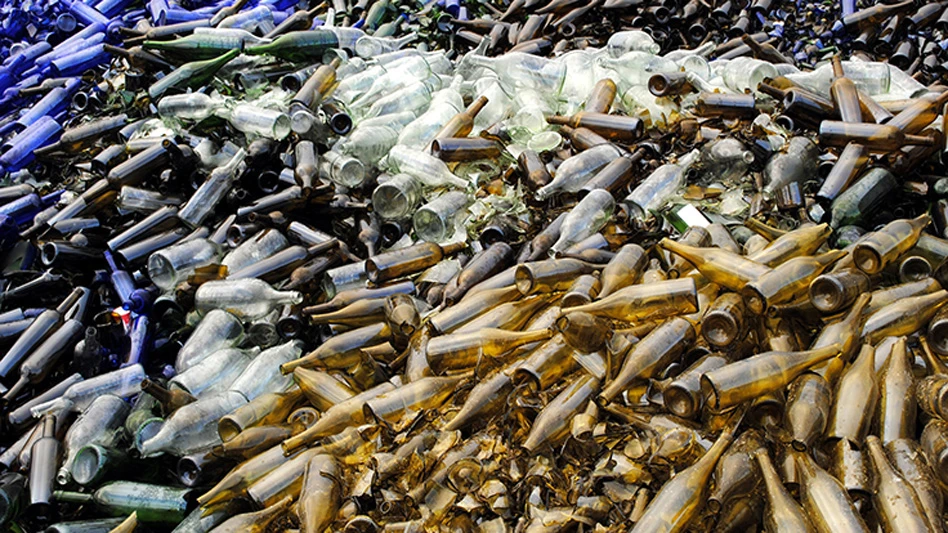
Mlhead | Dreamstime
Last month, lawmakers in Washington introduced a bill to modernize the state’s recycling infrastructure. The bill, called the Washington Recycling and Packaging act, introduces requirements for packaging and bottle collection that the authors, State Rep. Liz Berry and State Sen. Christine Rolfes, say they hope will boost recycling rates.
Within the past decade, the recycling rates in Washington have dropped from 56 percent to 48.5 percent, according to the Washington State Department of Ecology.
“Our recycling rates have stagnated over the last decade [with around] 50 percent of recyclable materials still going to landfills," Berry says. “So, this is a different way of approaching recycling systems in our state to make sure that we can achieve higher rates for our recyclables.”
If approved, the bill would take effect in 2024 and require producers of paper products and packaging (PPP) to join and make payments to a producer responsibility organization (PRO). The organizations would be charged with making plans to collect and manage covered PPP from consumers. PROs would act as a self-governing body and ensure a plan is meeting its goals. Berry adds each plan would be reviewed and approved by the Department of Ecology.
Additionally, the bill introduces deposit return systems (DRS) that can be implemented by an individual beverage distributor or a group of beverage distributors through what the bill calls a deposit return organization (DRO). DROs would function the same way PROs would for packaging.
Qualifying beverage containers include sealed glass, metal or plastic bottles or cans. The bill does not include containers for dairy milk, infant formula or other beverages excluded by the Department of Ecology. A refund value of 10 cents will be placed on qualifying containers.
DROs will have to submit annual reports to the Department of Ecology covering the previous year. The annual report would include information such as independently audited financial statements, according to the bill.
“[This is] similar to the style of Oregon’s bottle deposit system,” Berry says. “The state will set goals and rates that the industry needs to meet through these deposit return systems. The system will be completely governed and paid for by the packaging industry.”
Some exclusions would apply, primarily for businesses selling less than 1 ton of package products or those that have less than $5 million in global revenue.
While some stakeholders are optimistic the proposed legislation could improve recycling rates for the state, some waste and recycling haulers are skeptical.
During a House Environment and Energy hearing held Jan. 7, Mark Gingrich, a division vice president for Waste Connections, based in The Woodlands, Texas, said the bill could have potential negative impacts on the recycling system as it’s more costly to consumers.
“The bill lacks the coordination and planning with local stakeholders the current bill has,” Gingrich said. “Nothing is free ... the producers will seek to recover the costs of this bill through increased product prices for their customers.”
Jay O’Neal, general manager of a material recovery facility in Seattle for Republic Services, headquartered in Phoenix, said the bill could take the most valuable material out of the waste company’s recycling streams, causing a loss in profits. Waste companies could have to increase collection costs to offset those losses, he added.
“This is a monumental opportunity to take more than a million dollars of consumer packaging that’s going to the landfill and turn that into valuable commodities,” Berry said during a hearing of the bill Jan. 7. “This bill creates a path to reduce packaging plastics and paper and make sure what remains is composted or recycled.”
Recycling Today has reached out to Waste Connections and Republic Services for further comment.
Latest from Recycling Today
- Aqua Metals secures $1.5M loan, reports operational strides
- AF&PA urges veto of NY bill
- Aluminum Association includes recycling among 2025 policy priorities
- AISI applauds waterways spending bill
- Lux Research questions hydrogen’s transportation role
- Sonoco selling thermoformed, flexible packaging business to Toppan for $1.8B
- ReMA offers Superfund informational reports
- Hyster-Yale commits to US production





